
Zombies Reveal North American Tour Dates and Album Plans
by Dave LiftonThe Zombies have announced new tour dates for this spring. They also noted that they're working on a new record.
The band will play a pair of cruises in late March and early April: the Flower Power Cruise and the On the Blue Cruise, before playing Baton Rouge, La., on April 9. After two more shows in the South, they'll head to Canada, for eight dates in Manitoba, Alberta and British Columbia before wrapping up on April 25 at Victoria's Alix Goolden Performance Hall. After that they'll spend a month touring Europe.
You can see the North American dates below and get full ticketing information at the group's website.
The new album will be the Zombies' first since 2015's Still Got the Hunger and fourth since singer Colin Blunstone and keyboardist Rod Argent re-formed the band in 2000. Argent told Rolling Stone there's a parallel between the new work and their era-defining "Time of the Season," which was tracked in Studio Three of London's Abbey Road Studios.
“It’s now 51 years since ‘Time of the Season’ reached No. 1 on the U.S. single charts,” he said. “Unbelievably, it’s a song that feels just as much a joy to play now as it did all those years ago! In a lovely coincidence, just two days ago we were excited to finish the first three newly written tracks for our upcoming album in my just-completed studio, which sounds great and happens to be designed by the same guy responsible for the acoustic design of all the Abbey Road Studios — including Studio Three!”
The Zombies were inducted into the Rock and Roll Hall of Fame last year.
The Zombies Spring 2020 North American Tour
March 28-31 — Flower Power Cruise
April 1-8 — On the Blue Cruise
April 9 — Baton Rouge, LA @ Manship Theatre
April 10 — Birmingham, AL @ Iron City
April 11 — Biloxi, MS @ Hard Rock
April 15 — Winnipeg, MB @ Club Regent Event Centre
April 17 — St. Albert, AB @ Arden Theatre
April 18 — Calgary, AB @ Deerfoot Inn & Casino
April 20 — Camrose, AB @ Lougheed Centre
April 21 — Medicine Hat, AB @ Esplanade Arts & Heritage Centre
April 22 — Cranbrook, BC @ Key City Theatre
April 24 — Vancouver, BC @ Commodore Ballroom
April 25 — Victoria, BC @ Alix Goolden Performance Hall
Top 100 Albums of the '60s

'Please Please Me'
The Beatles (1963): The Beatles' debut album is the sound of rock 'n' roll at the crossroads. On one hand, many of its songs are rooted in the '50s (and earlier) music the group revered. On the other hand, this is the '60s taking shape.

'Freewheelin' Bob Dylan'
Bob Dylan (1963): From the loopy title to the goofy cover image, Dylan’s second LP revels in something you don’t see much anymore: his humor. Even the liner notes are funny: “Anything I can sing, I call a song," Dylan writes. "Anything I can’t sing, I call a poem.”

'With the Beatles'
The Beatles (1963): After spending just one day recording their debut album, the Beatles appeared to take a more leisurely pace here, piecing together the follow-up over seven sessions. The real reason? They were crisscrossing England, building a rabid fan base that would make 'With the Beatles' their first U.K. million seller. Next up: America!

'A Hard Days Night'
The Beatles (1964): Even though it shares a title with the Beatles' first movie, 'A Hard Day's Night' plays more like the group's third LP than a soundtrack. Yeah, some of the songs are in the film, but this classic stands confidently on its own.
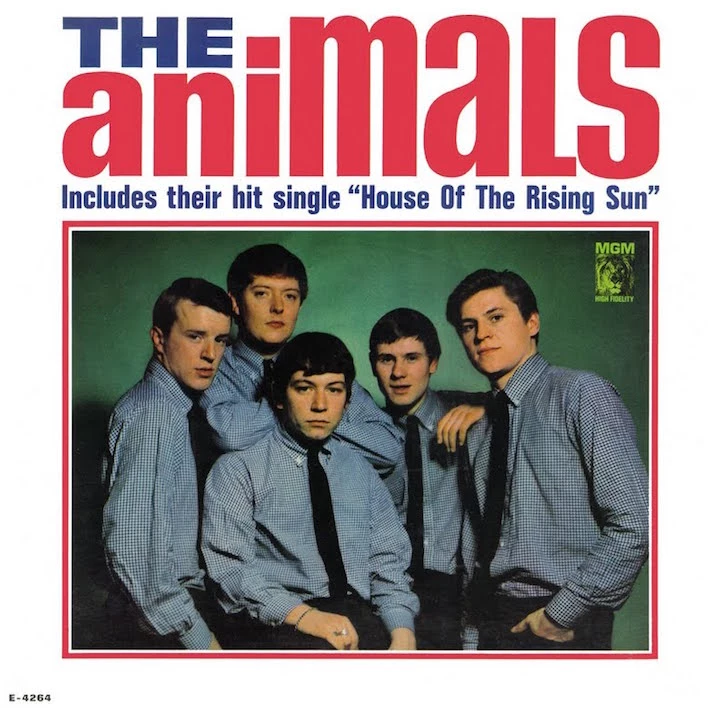
'The Animals'
The Animals (1964): These soul shouters might have looked, at least on paper, like yet another Brit band flipping through the familiar American R&B songbook. But what they did with a trio of Chuck Berry songs made their counterparts sound wafer thin, like put-ons. Then there was a scorching take on "House of the Rising Sun," as dark and full of portent then as now.
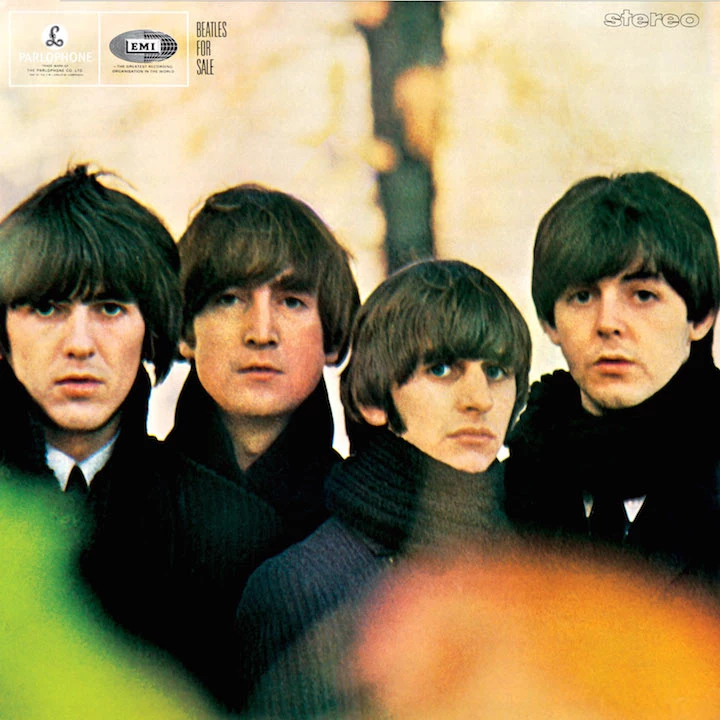
'Beatles for Sale'
The Beatles (1964): On standout tracks like "No Reply," you hear, finally, everything the Beatles would one day be. Inventive in that it has no chorus as such, this is a key early moment for another reason: It’s one of the first Beatles songs with a complete story. They were just getting started, of course. There'd be many more to tell.

'Now!'
The Rolling Stones (1965): The Stones' third U.S. album gathers songs from various U.K. sides – LPs, singles, leftovers – and turns out to be the band's first essential release. It's heavy on blues and R&B covers, but "Heart of Stone," one of Mick Jagger and Keith Richards' first original numbers, signals things to come.
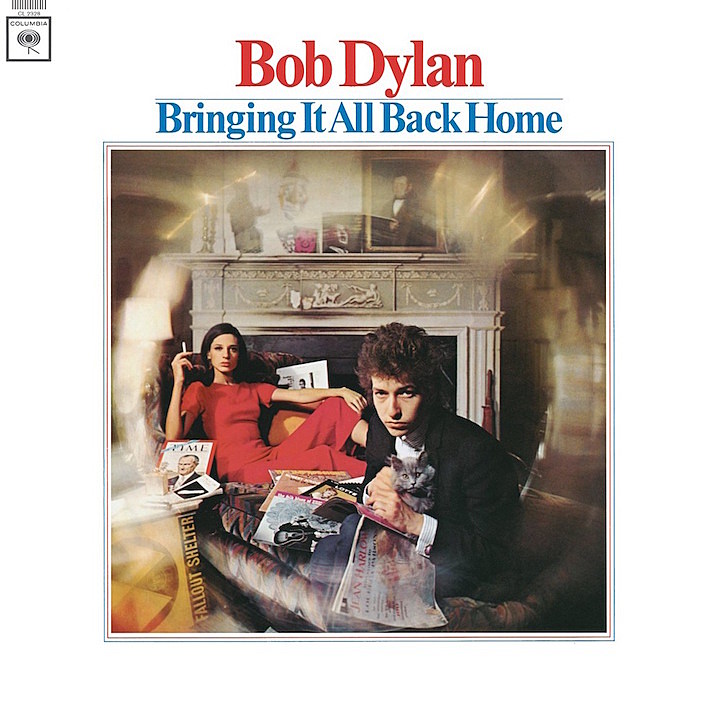
'Bringing It All Back Home'
Bob Dylan (1965): The album that changed everything for Dylan. Side one is all electric, plugged-in fury; side two is sprawling acoustic folk. Within the next 15 months, he'd release two more eternal classics. It all starts here.
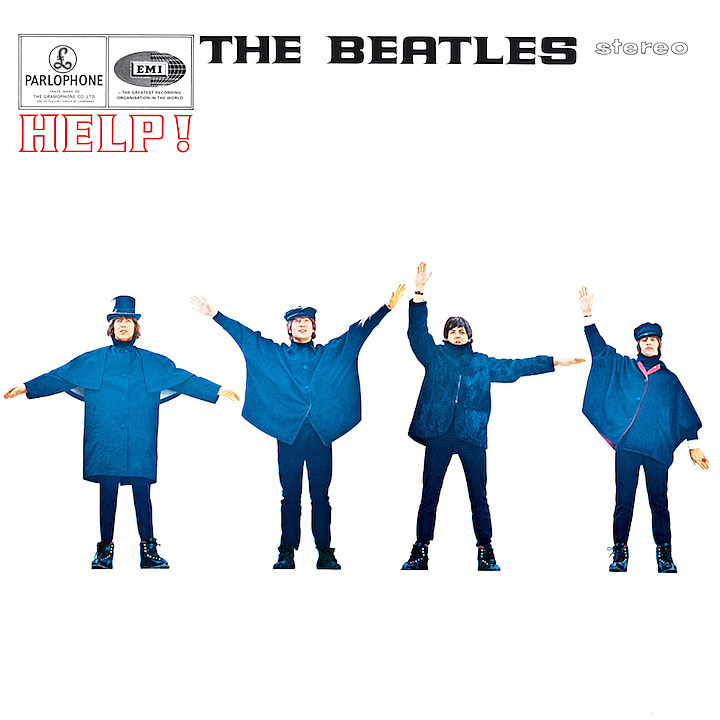
'Help'
The Beatles (1965): More than just the soundtrack to the Beatles' second movie, 'Help!' is the first step on the path that led to 'Rubber Soul,' which led to 'Revolver,' which led to 'Sgt. Pepper's.' In other words, it's the moment where they outgrew Beatlemania and became the 20th century's most important music artists.
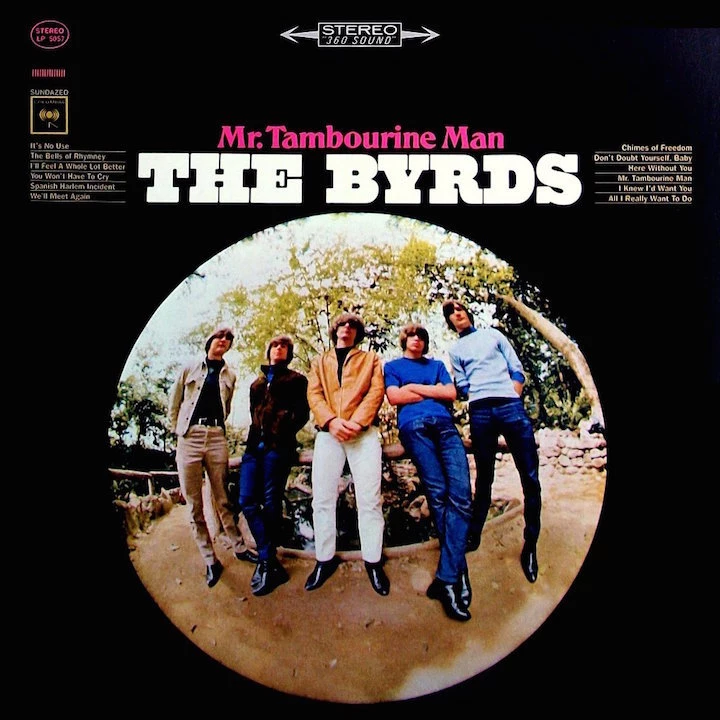
'Mr. Tambourine Man'
The Byrds (1965): A Bob Dylan song reimagined into something like the Beach Boys, and also something like the Beatles – and nothing like folk music – propelled the Byrds to their first No. 1. Oh, and it popularized the folk-rock movement.

'Out of Our Heads'
The Rolling Stones (1965): We prefer the U.S. version of the Stones' classic 1965 album, because it includes "(I Can't Get No) Satisfaction," among other differences. Either way, from here on out the group was on a, um, roll, tossing aside blues and R&B covers for world-shaking originals.
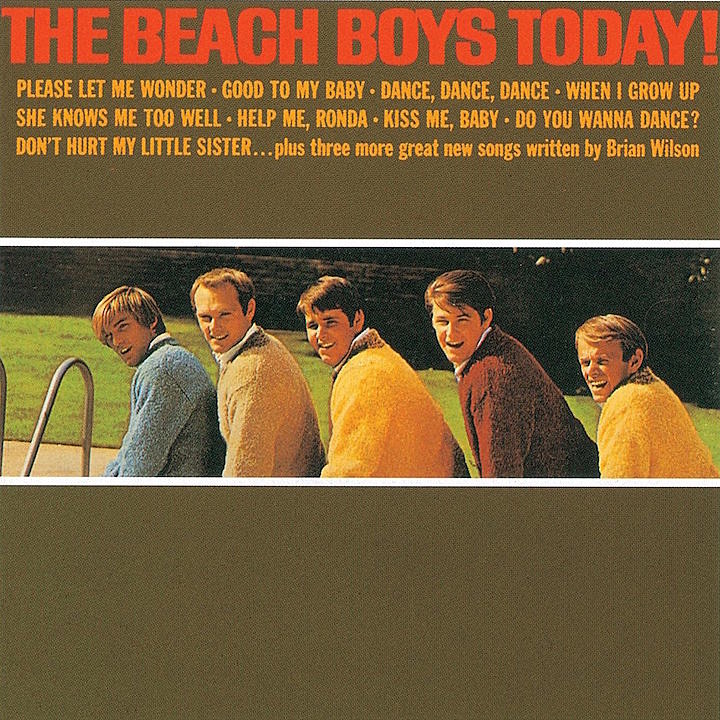
'Today'
The Beach Boys (1965): The first real album to showcase Brian Wilson's budding genius, 'Today!' is the ramp-up to 'Pet Sounds,' featuring Beach Boys classics like "When I Grow Up (To Be a Man)," "Help Me, Rhonda" and other teenage symphonies to God.
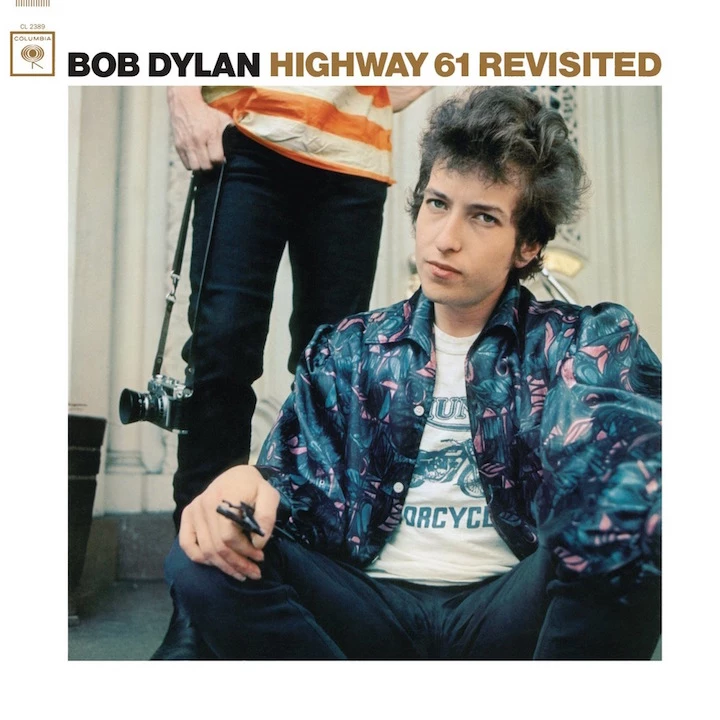
'Highway 61 Revisited'
Bob Dylan (1965): The gauntlet could be found clanging around on the floor from the opening stanza of “Like a Rolling Stone,” a career-making track from Dylan's second electric album. “The first two lines,” Dylan once said, “which rhymed ‘kiddin’ you’ with ‘didn’t you,’ just about knocked me out.” Us too.

'Paul Butterfield Blues Band'
Paul Butterfield Blues Band (1965): The debut album by Butterfield and his ace band is loaded with blues classics by Elmore James, Muddy Waters and Willie Dixon. For a bunch of white guys from Chicago, they sure made it sound effortless.

'Having a Rave Up'
The Yardbirds (1965): Half Eric Clapton (on the live blues part), half Jeff Beck (on the more experimental pop stuff), this is the two sides of the Yardbirds reaching for a common ground. Take your pick: The electricity surging through both guitarists powers a band that had songs and chops to spare.

'Rubber Soul'
The Beatles (1965): The Beatles traded their pop smarts for something more mature on 'Rubber Soul,' up to that point the most accomplished album made by a rock band. The seeds of the music's future can be heard in "Norwegian Wood (This Bird Has Flown)," "Nowhere Man" and "In My Life." This is the moment where Beatlemania grew up.

'My Generation'
The Who (1965): A little rough, a little raw, somewhat unfocused and not quite sure of itself, the Who's debut album nonetheless introduced listeners to one of rock's all-time greatest bands. The title track is the killer here, but dig deep and you'll hear garage rock at its most soulful.
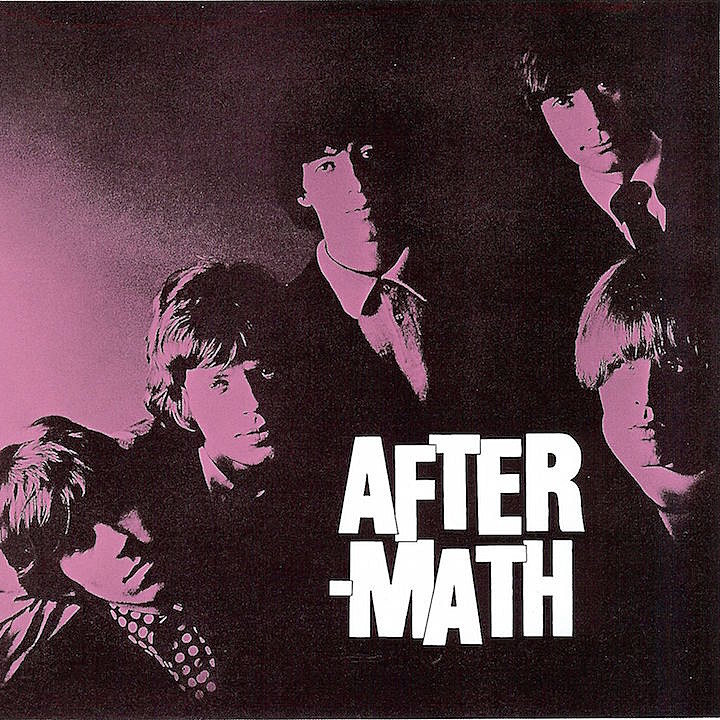
'Aftermath'
The Rolling Stones (1966): Think of it as the Rolling Stones' 'Rubber Soul' – the album that signaled a giant leap forward. Brian Jones plays around with instruments, Jagger and Richards write every single song for the first time and the group looks inward to see the future.
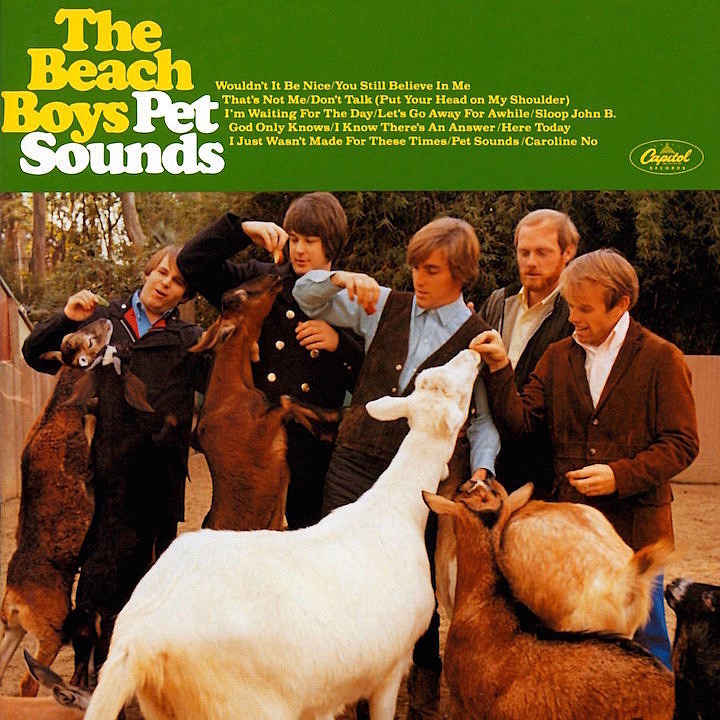
'Pet Sounds'
The Beach Boys (1966): Is this the most gorgeous album ever made? Possibly. It's certainly one of the greatest pop records of the 20th century, a song cycle of teenage dreams, glorious harmonies and kitchen-sink production that Brian Wilson learned from Phil Spector.
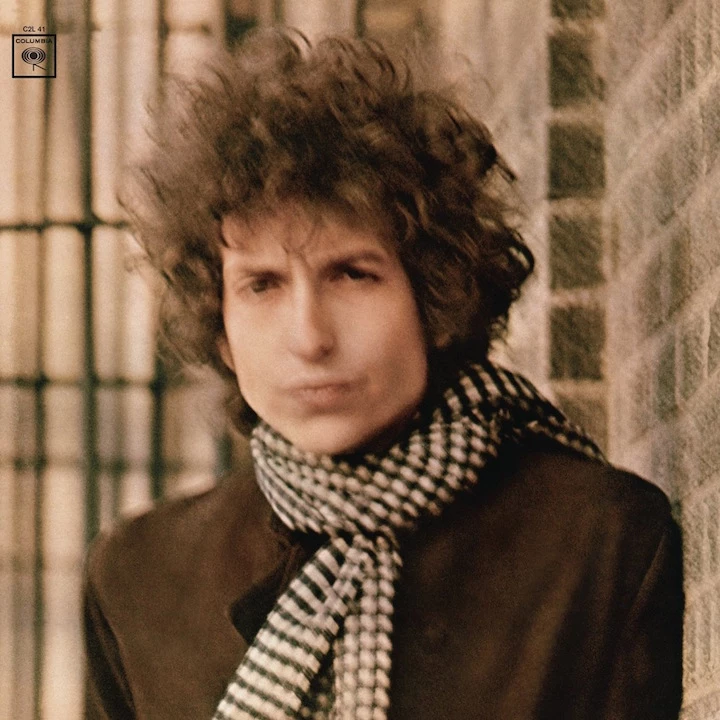
'Blonde on Blonde'
Bob Dylan (1966): Dylan capped his 15-month hitting streak with this double-album masterpiece that's looser, tougher and more tuneful than almost anything else in his vast catalog. After its release, he disappeared for a year and a half, eventually re-emerging as a windswept cowboy.

'Freak Out'
The Mothers of Invention (1966): Frank Zappa's debut album was full of ambition: a double LP, a concept record and a weird mix of everything from doo-wop to pop to soul to (yes) freak-out rock music. He messed around with variations on these themes for the rest of his career.

'Blues Breakers With Eric Clapton'
John Mayall's Bluesbreakers (1966): Clapton was already a star with the Yardbirds when he split that group and joined British bluesman Mayall's expanding project. And he's the star here, giving blues standards by Robert Johnson and Little Walter new, warm hues and cementing his status as one of the all-time guitar greats.

'Roger the Engineer'
The Yardbirds (1966): Jeff Beck leads the Yardbirds on a collection of originals that treads the middle ground between the blues and Britpop. "Over Under Sideways Down" (its U.S. album title) was the semi-hit, but the flashes of psychedelic mystery in Beck's guitar are pure magic.
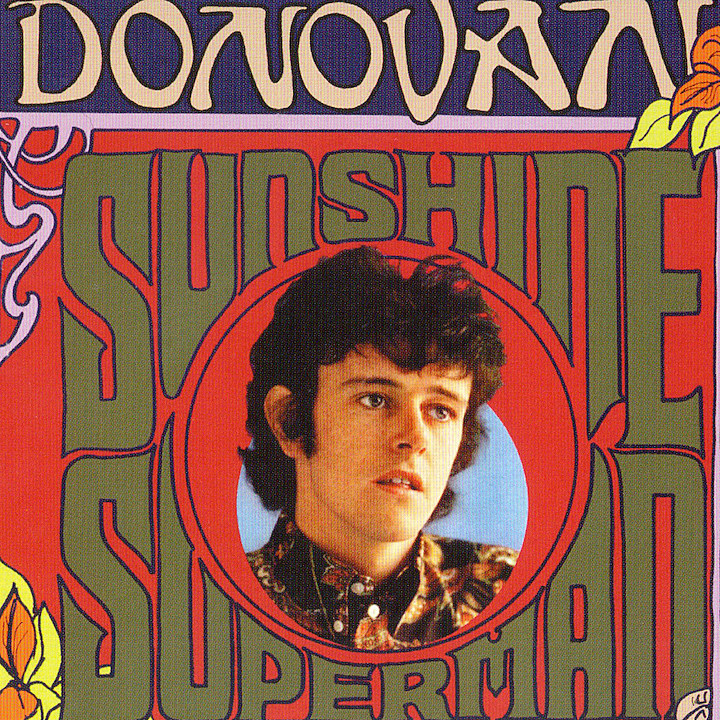
'Sunshine Superman'
Donovan (1966): As new producer Mickie Most moved him determinedly toward psychedelia, Donovan's familiar flights of lyrical fancy finally found a suitable context. There were still a few lingering moments of folk to be found, but the bulk of this album dresses up one of the era's most multi-colored voices in just the right amount of pomp.

'Revolver'
The Beatles (1966): 'Rubber Soul' was a tentative step into new territory for the Beatles. 'Revolver' is a full leap. The studio became their playground here, as they tricked out their songs with tapes, backward masking and a sense of adventure that pretty much opened up the decade to new sounds.
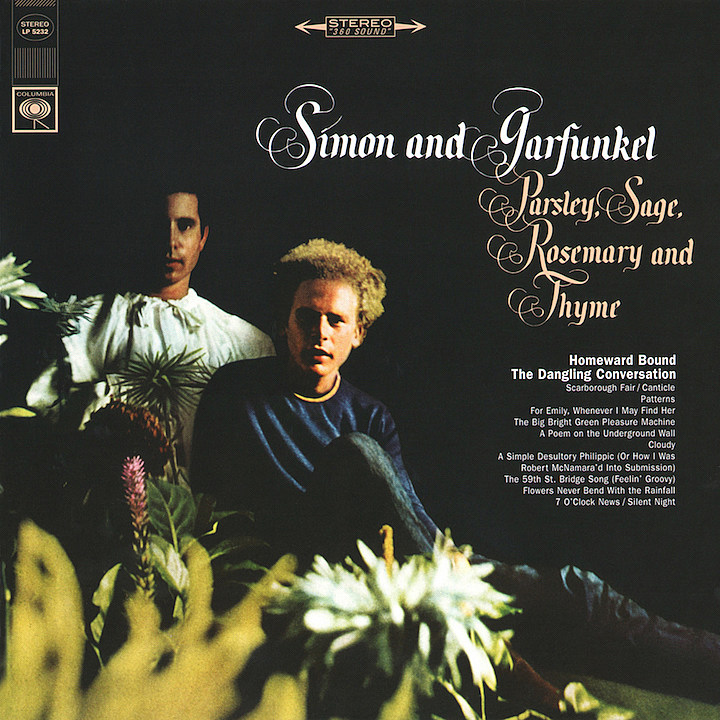
'Parsley, Sage, Rosemary and Thyme'
Simon and Garfunkel (1966): On their third album, Simon & Garfunkel begin to expand their pop and folk horizons, enveloping deeper shades of music along the way. Paul Simon's words were getting sharper too; "Homeward Bound" points to bigger and grander things to come.

'Fresh Cream'
Cream (1966): Restless Eric Clapton's first supergroup transports his love of vintage blues music to contemporary electric jams, with Ginger Baker and Jack Bruce making up his best-ever rhythm section. Cream's debut came out fully formed, and set a template that bands would imitate for years to come.
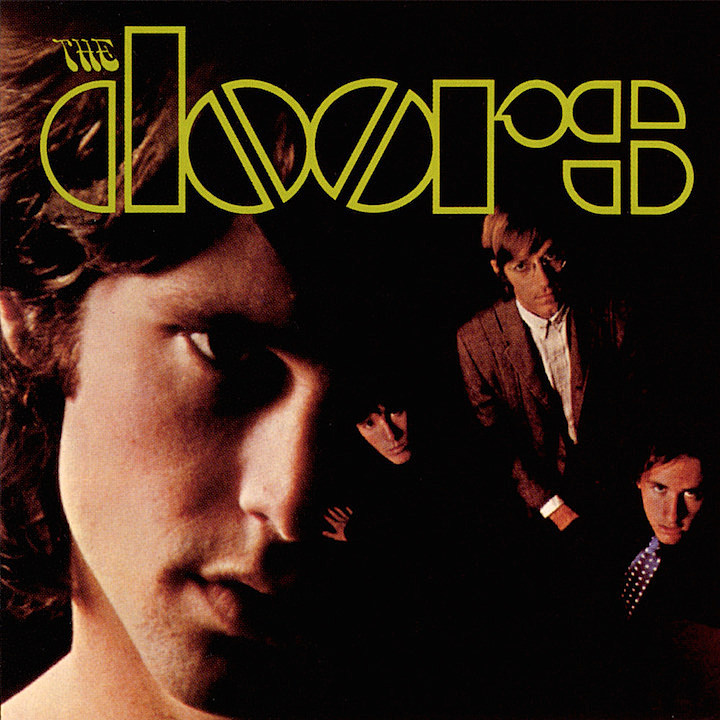
'The Doors'
The Doors (1967): The Doors sounded unlike any other band of the era. Guided musically by Ray Manzarek's simultaneously haunting and playful keyboards and pushed forward lyrically by Jim Morrison's bruised poetry, their debut album is sexy, dangerous, pretentious and occasionally self-absorbed. Just like the '60s.

'A Quick One'
The Who (1966): The title track was Pete Townshend's first stab at a rock opera (and a mighty good one at that). But the rest of the Who's second album is pretty awesome too, with the band moving outside of the limitations of its debut LP and finding new musical ground to explore and plunder.

'Between the Buttons'
The Rolling Stones (1967): Go for the U.S. version of the Stones' 1967 album. "Let's Spend the Night Together" and "Ruby Tuesday" are added, and give the record, as well as the band, a pre-Summer of Love boost. Forget 'Their Satanic Majesties Request'; this is the group's greatest psychedelic trip.

'Younger than Yesterday'
The Byrds (1967): Everybody was embracing new sounds in 1967, including the Byrds, whose fourth album steers even further away from the folk rock of their previous records. "So You Want to Be a Rock 'n' Roll Star" is self-effacing psychedelia, but there was room for Dylan, too, in "My Back Pages," which sorta gave the LP its title.
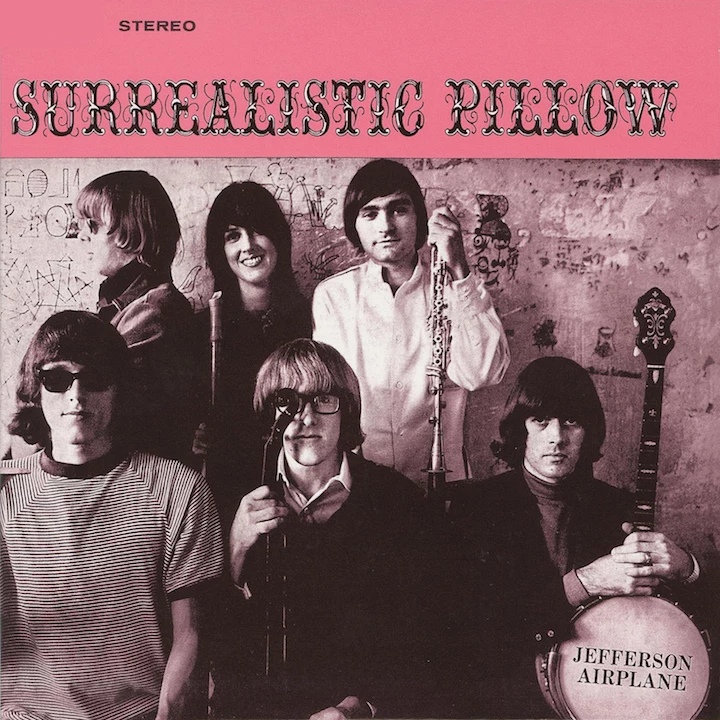
'Surrealistic Pillow'
Jefferson Airplane (1967): Jefferson Airplane's second album introduced their new singer, Grace Slick, and that made all the difference in the world. She brought two great songs – "Somebody to Love," written by her brother-in-law, and "White Rabbit" – as well as a sense of what the Summer of Love was all about.

'Velvet Underground and Nico'
Velvet Underground and Nico (1967): Andy Warhol kinda forced German singer Nico onto the ragged New Yorkers, but the three cuts she sings on here are among their very best. Her smoky, detached tone perfectly fits the tearing, buzzing and shredding played by the inventors of noisy art rock.

'Are You Experienced?'
Jimi Hendrix Experience (1967): He didn't just rewire the blues, plugging directly into the new age, and didn't just begin building a heavy-metal template. This was bigger. Hendrix's debut saw him take the familiar artiface of electric guitar and make it into something brand new, an otherworldly experience – confusing, exciting, surprising and way-cool loud.
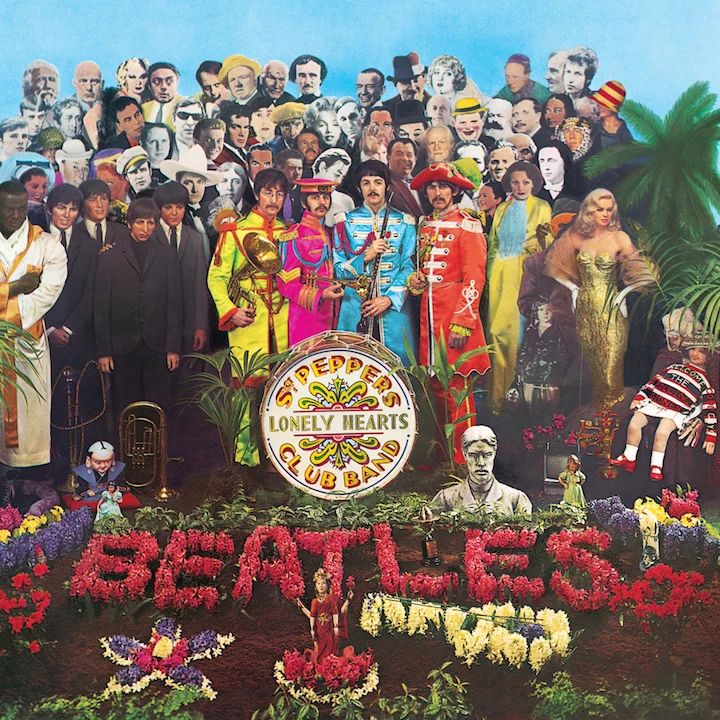
'Sgt. Pepper's Lonely Hearts Club Band'
The Beatles (1967): The loose, over-reaching theme might have made this the big-bang of prog. But 'Sgt. Pepper's,' more often than not, is too much fun for that. A fizzy combination of ambition and pop smarts – underscored by an eye-popping maze of cover-art cultural icons to pore over – has always made this the Beatles' most-praised work, and rightfully so.
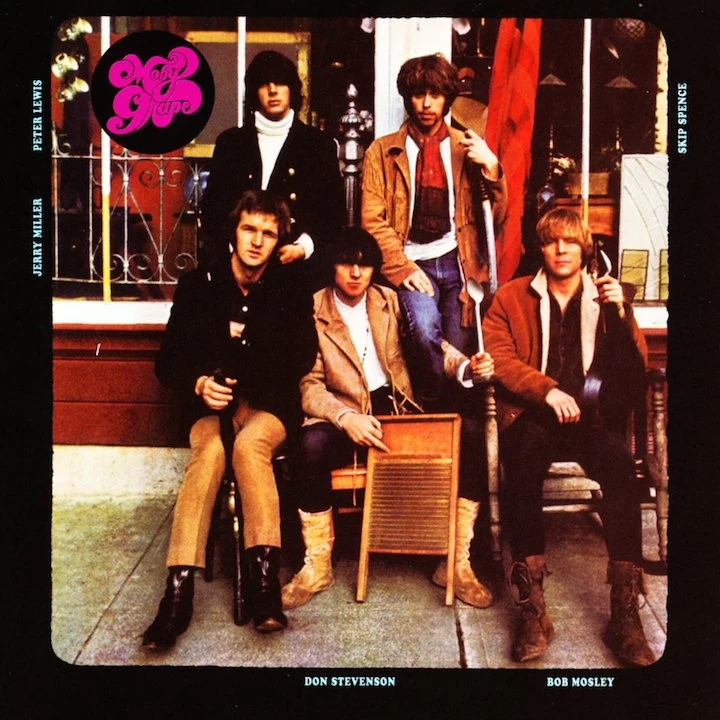
'Moby Grape'
Moby Grape (1967): Other San Francisco bands got more attention during the period, but Moby Grape boasted a trio of dynamic guitar players who knew when to pull back and let the songs (rather than the grooves) take over. Their debut album remains a milestone of the scene.

'Piper at the Gates of Dawn'
Pink Floyd (1967): Before the 10-minute space-age jams, before the prog and before the groundbreaking concept albums that turned on a generation, Pink Floyd were a psychedelic band with a fearless leader who chose to burn out rather than to fade away. Syd Barrett is not only the instigator, but the mad architect behind this captivating set of mind-benders.

'Strange Days'
The Doors (1967): ‘Strange Days,’ in many ways, followed the template of the Doors' self-titled debut from earlier in the year, but – for some reason – not its trajectory up the charts. That means there's still much to discover here, as they began to feel more comfortable experimenting in the studio.

'Something Else'
The Kinks (1967): The Kinks' lead-in to their 'Village Green' masterwork is cut from the same pastoral cloth, but some of the band's garage-rock roots seep through. Still, songs like "David Watts" and "Waterloo Sunset" point to sunny days ahead.
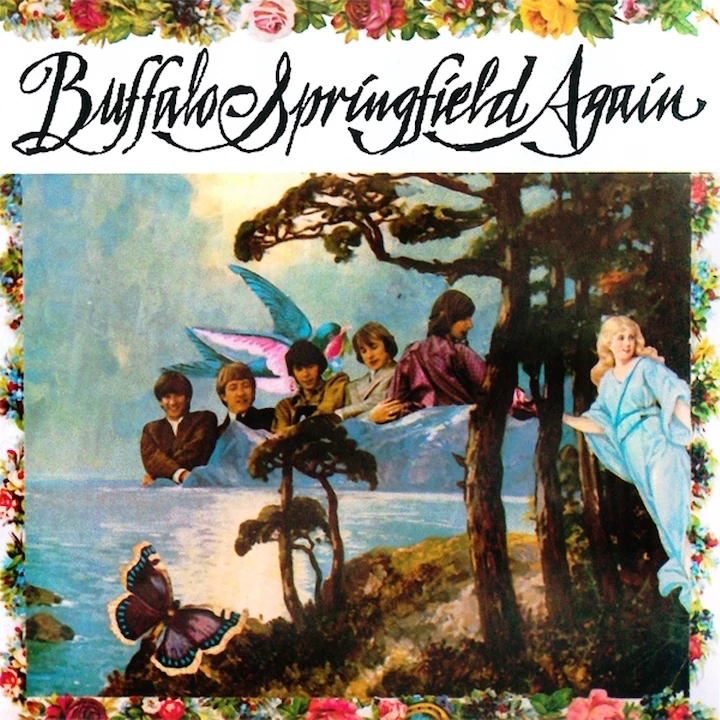
'Again'
Buffalo Springfield (1967): Buffalo Springfield's second album hinted at the turmoil behind the scenes. Neil Young's songs sound like solo cuts, Stephen Stills brought in session musicains for some of his and there isn't much band interaction. The songs are great, though, and it's a cornerstone record of country-folk psychedelia.
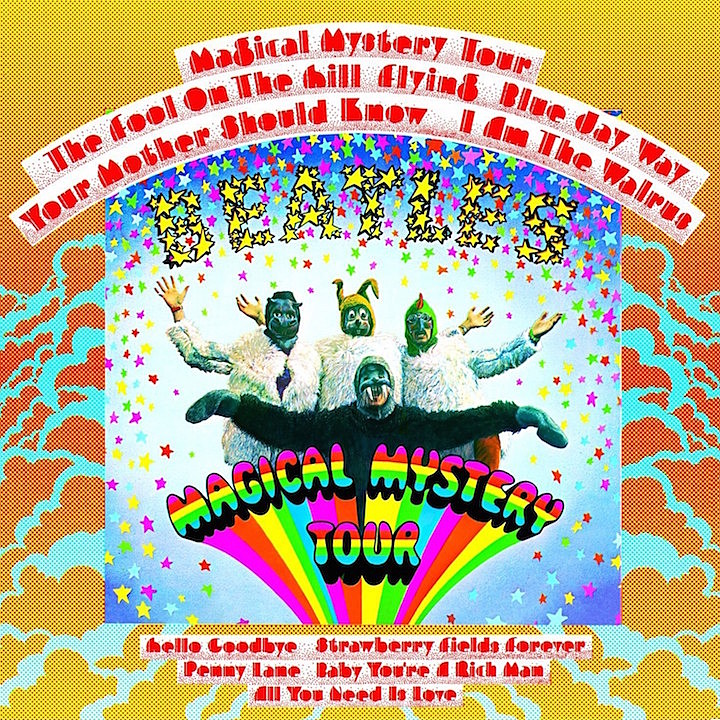
'Magical Mystery Tour'
The Beatles (1967): Pity the poor Brits, who only received the first half of this album as an EP. Side two of the U.S. version, meanwhile, included the greatest-ever Beatles double-sided single in "Penny Lane" and "Strawberry Fields Forever." For once, the '60s-era greed of Capitol Records, which chose to pair the original film’s music with a trio of recent hit 45s, actually paid off.

'Disraeli Gears'
Cream (1967): The cover of Cream's second album pretty much tells you what to expect inside – a kaleidoscope of psychedelic colors and senses-assauting self-indulgence. From the period anthem "Sunshine of Your Love" to the mini-prog epic "Tales of Brave Ulysses," this is the band at its widescreen and over-abundant best.
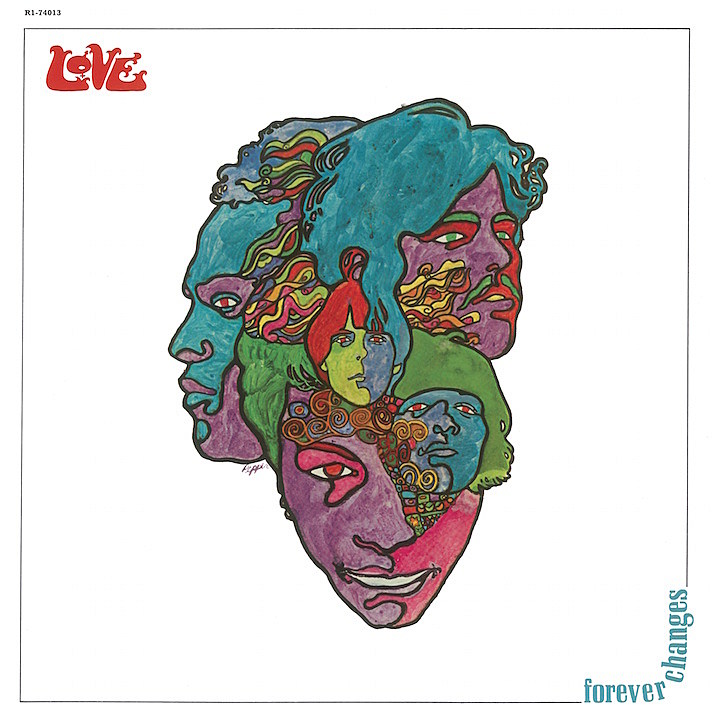
'Forever Changes'
Love (1967): Love's third album is the sound of the Summer of Love kissing itself. Embellished by horns, strings and a pastoral ethos that transforms these former garage rockers into one of the era's best baroque pop groups. 'Forever Changes' is their masterpiece, and a glorious document of the period.

'Days of Future Passed'
The Moody Blues (1967): A breakthrough moment for the Moody Blues’ second, more prog-focused line-up, highlighted initially by the intriguingly episodic “Tuesday Afternoon” and then, much later, by “Nights in White Satin” – which for some reason wasn't released as a single in the U.S. until 1972, where it promptly shot to No. 2.
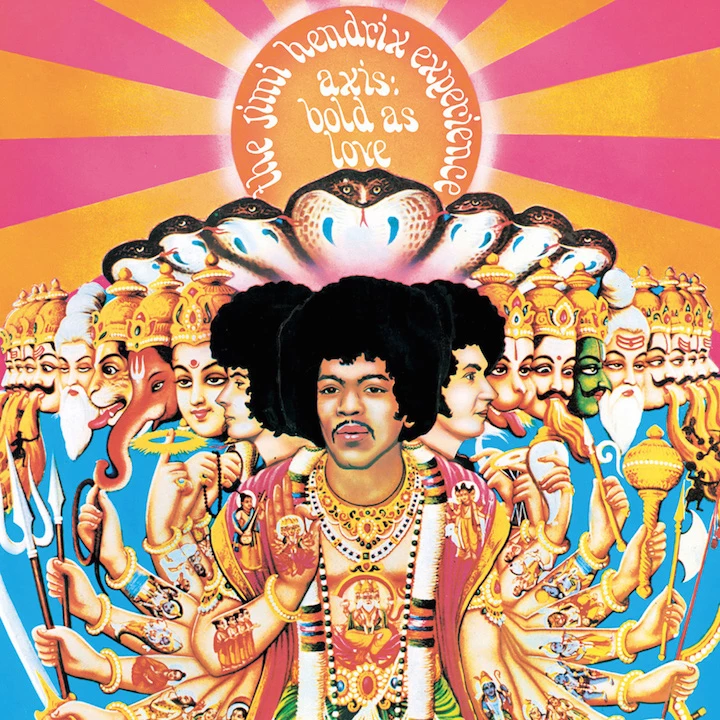
'Axis: Bold as Love'
Jimi Hendrix Experience (1967): Still Hendrix's most indelible blending of African-American roots-music showmanship, lyrical Dylanesque whimsy and grease-fire virtuosity. His impishly magnetic personality, retro-cool fashion sense and flinty outsider inventiveness glued it all together.
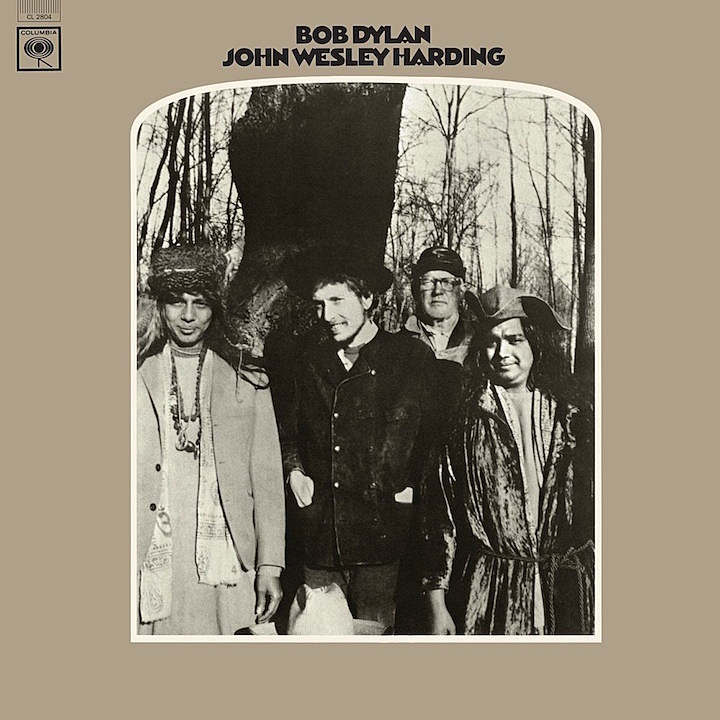
'John Wesley Harding'
Bob Dylan (1967): Released in the time immediately following 'The Basement Tapes' (which wouldn't see the light of day 'til the dawn – or is that yawn? – of disco), Bob Dylan goes twangy, and with resounding success. His rootsy return, in fact, set the stage for a seismic shift in rock.

'Sell Out'
The Who (1967): Pete Townshend's first album-length concept project takes the form of a pirate radio station, complete with jingles, ads and pop-music static. 'Tommy' and 'Quadrophenia' are better realized, but 'The Who Sell Out' is way more fun.
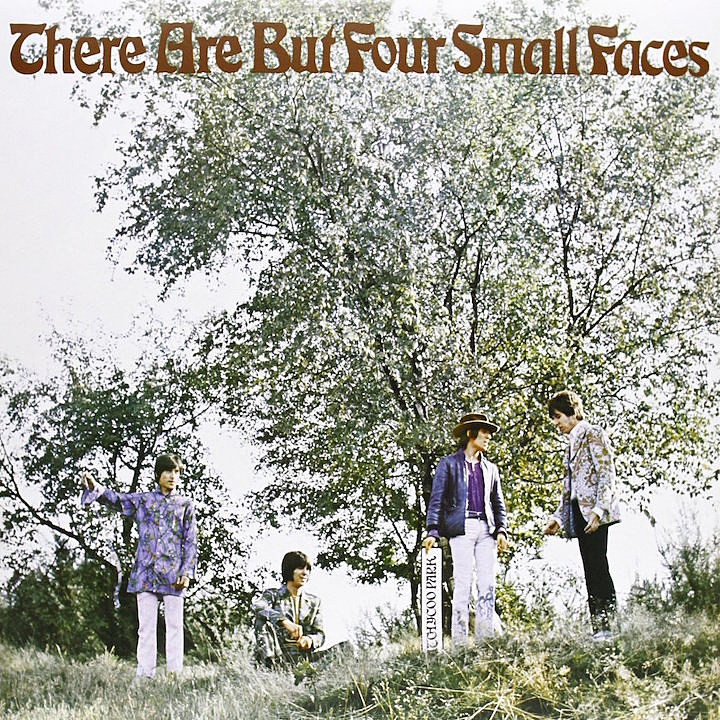
'There Are but Four Small Faces'
The Small Faces (1967): Retitled and reshuffled for U.S. audiences, this followed the confusing release of two separate self-titled albums by the group. What made perfect sense: adding the ageless single "Itchycoo Park" into the lineup, to say nothing of "Here Come the Nice" and "Tin Soldier," as the band rapidly expanded its musical palette.

'Mr. Fantasy'
Traffic (1967): Traffic's debut leveraged their deeply talented four-man cast perfectly, as Steve Winwood, Chris Wood, Jim Capaldi and the soon-to-depart Dave Mason created an intriguing, endlessly eclectic blend of psychedelic blues.
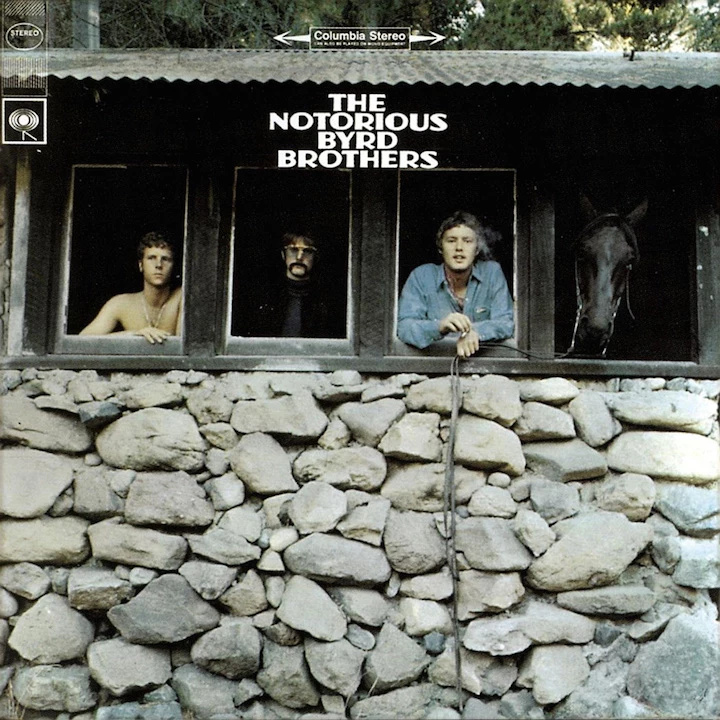
'Notorious Byrd Brothers'
The Byrds (1967): Behind the scenes, the Byrds were falling apart (David Crosby was fired right after they recorded 'The Notorious Byrd Brothers'), but all is peace-and-love harmony in the songs. Ramping up to 'Sweetheart of the Rodeo,' they kiss the '60s goodbye.

'White Light White Heat'
Velvet Underground (1968): Their debut featured moments of avant-garde noise sprinkled among the nihilistic junkie-pop. But nothing, really, to prepare you for this ferocious cacophony. It’s been said that producer Tom Wilson actually left during the inner ear-rearranging sessions for "Sister Ray." It's that kind of record.
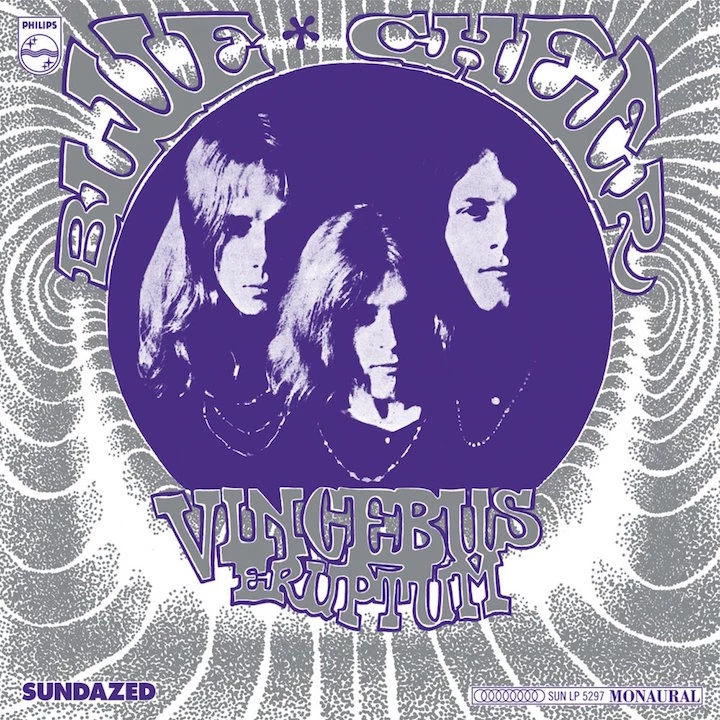
'Vincebus Eruptum'
Blue Cheer (1968): Heavy, so very heavy, and completely stoned sounding, 'Vincebus Eruptum' can be credited by turns as the birthplace of metal, of punk and of grunge. Whatever you call it, this furious outburst remains a touchstone of rock primitivism.
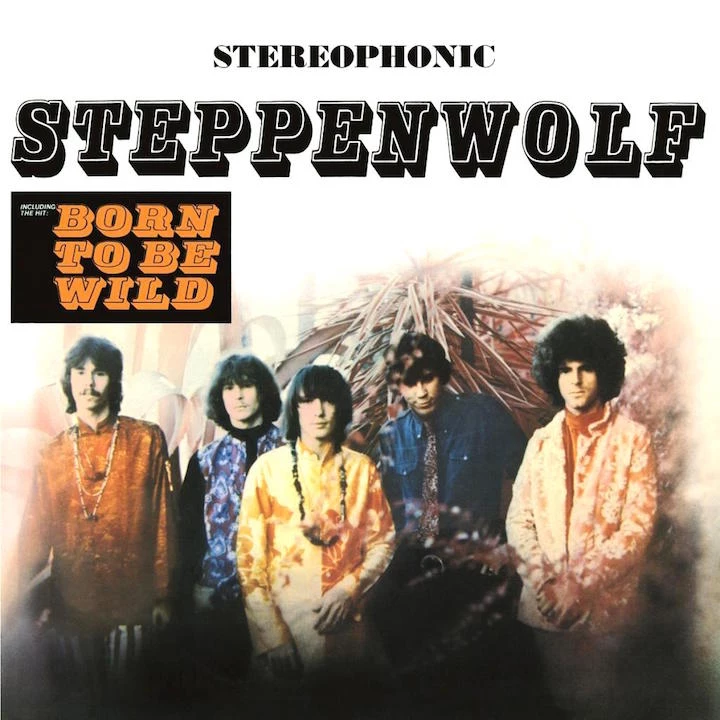
'Steppenwolf'
Steppenwolf (1968): The 'Easy Rider' film solidified Steppenwolf's "Born to be Wild" as a hard-rock anthem for the emerging counterculture, but there was more to this confident debut – from their searing take on "The Pusher" to crunchy nods to the influences of Chuck Berry and blues legend Willie Dixon.

'Child Is Father to the Man'
Blood, Sweat and Tears (1968): Al Kooper made only one album with the group he helped form, but it influenced many of the horn-heavy acts that sprouted over the next few years. And unlike subsequent Blood Sweat and Tears records, 'Child Is Father to the Man' isn't weighed down by sap.
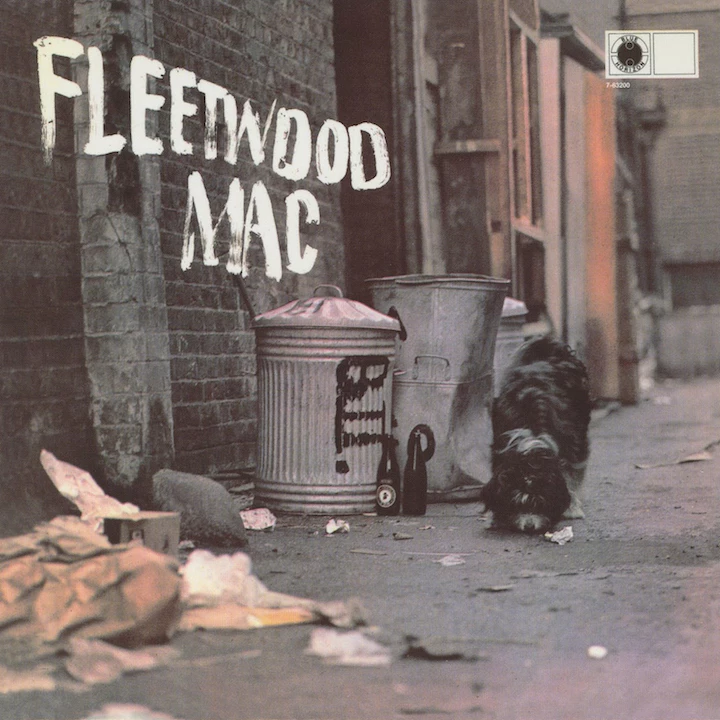
'Peter Green's Fleetwood Mac'
Fleetwood Mac (1968): Green, who had met Mick Fleetwood and John McVie as members of John Mayall’s Bluesbreakers, later descended into mental illness – opening the door for a more mainstream turn by the band. There is much to recommend for blues lovers, however, in these gritty early recordings.

'We're Only in It for the Money'
The Mothers of Invention (1968): Frank Zappa was no fan of hippies and the Summer of Love, and one of his sharpest albums takes aim at a period milestone: the Beatles' 'Sgt. Pepper's Lonely Hearts Club Band.' This isn't playful parody; this is satire at its most cutting.
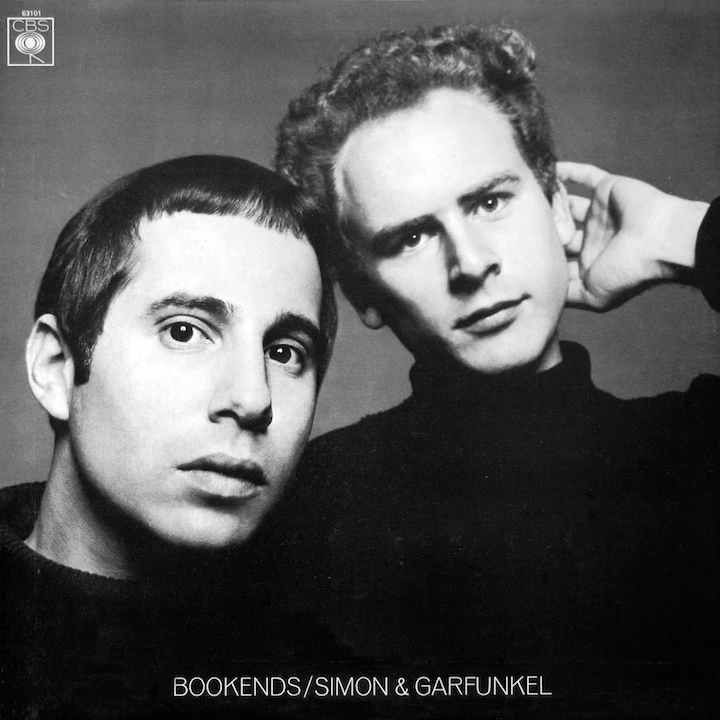
'Bookends'
Simon and Garfunkel (1968): Coming off the outsized success of work on 'The Graduate,' Simon & Garfunkel returned with a painstakingly recorded, fiercely unified song cycle that focused on the stages of life. As they moved confidently away from early folk-revival mannerisms, the duo found its shared voice.
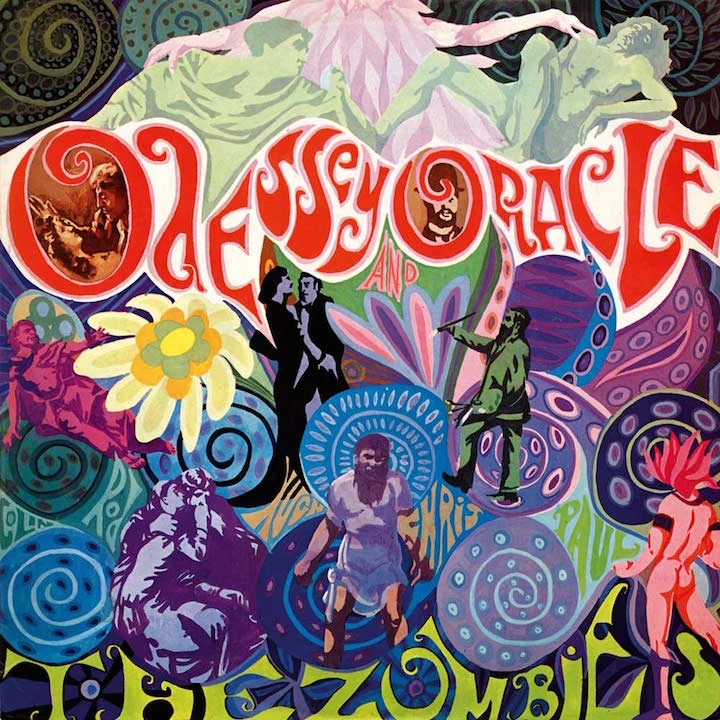
'Odessey and Oracle'
The Zombies (1968): 'Odessey and Oracle' was pretty much ignored when it was released in 1968; it didn't fare much better when "Time of the Season" became a hit a year later. But over the years the album's reputation has grown, and for good reason: It's one of the era's most ambitious and exciting LPs.
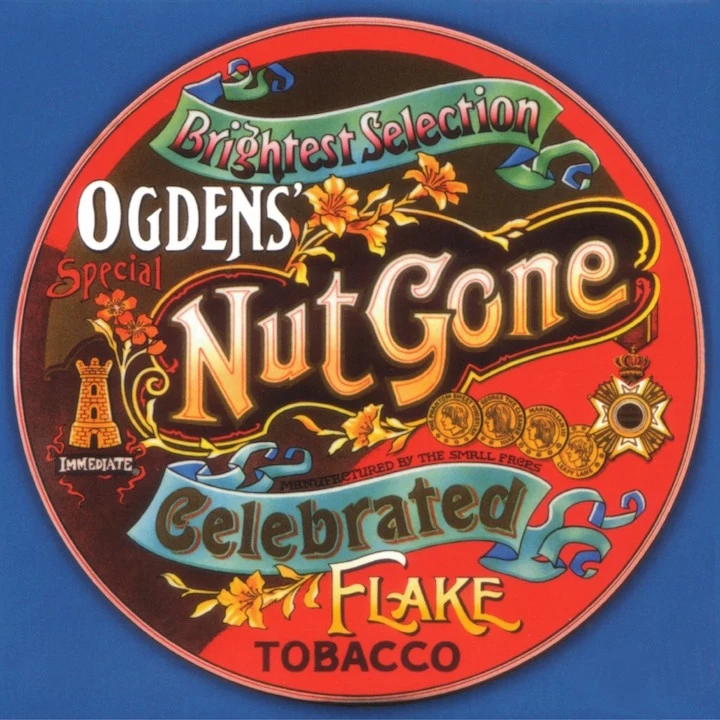
'Ogden's Nut Gone Flake'
The Small Faces (1968): Winkingly titled after a brand of tobacco sold around Liverpool, this themed album found the Faces continuing a head-long dive into psychedelia. What was interesting is that they still sounded as nervy and tough as ever.

'In-A-Gadda-Da-Vida'
Iron Butterfly (1968): This will always be dominated by the side-long, 17-minute title-track jam, a heavy-psychedelic triumph that made the album the first ever to earn platinum-selling status. Less well-known – but worth exploring – are the other three sides, which are filled with only-in-the-'60s variations on that same distorted acid-rock attitude.

'Music From Big Pink'
The Band (1968): Before they even recorded their debut album, the Band had taken part in a controversial, whirlwind tour with Bob Dylan and had recorded the historic 'Basement Tapes' with him. On their own, they covered Dylan, combed America's back roads and made a timeless record of faith, hope and regret.

'Wheels of Fire'
Cream (1968): Split into studio and live discs, 'Wheels of Fire' became the first platinum-selling double album on the strength of thumping originals like "White Room" and definitive concert excursions through treasured blues favorites like "Spoonful" and, in particular, "Crossroads."
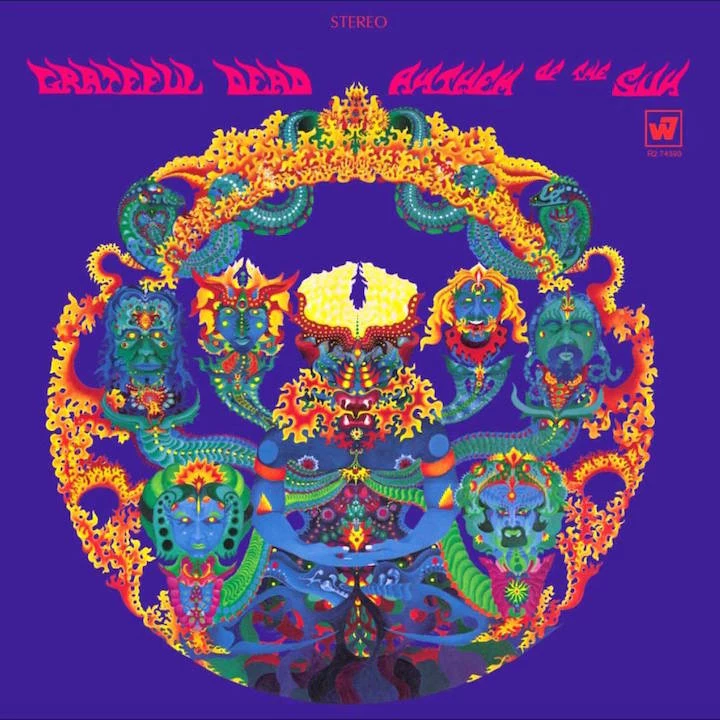
'Anthem of the Sun'
The Grateful Dead (1968): The Dead's second album is part live record, part studio LP and all mad tinkering behind the scenes. It's the ultimate trip album by a band that knew a thing or two about trips. Songs – like the 11-minute centerpiece "Alligator" – slip in and out of each other with sly winks along the way.

'Super Session'
Mike Bloomfield, Al Kooper and Stephen Stills (1968): This was, to be sure, the product of a different time -- a time when players of a certain pedigree could get together in the studio, just to see what happened. Such is the mercurial, and quite enduring, magic surrounding 'Super Session.'

'Cheap Thrills'
Big Brother and the Holding Company (1968): Big Brother's self-titled debut from 1967 is clumsy and loaded with filler. But 'Cheap Thrills,' partly recorded live, is a sterling showcase for Janis Joplin, who quickly outgrew this often lumbering band and launched a short, but successful, solo career.

'Sweetheart of the Rodeo'
The Byrds (1968): The Byrds were in a period of flux by 1968, having lost a few original members and testing some new musical waters. For 'Sweetheart of the Rodeo' they recruited Gram Parsons, got twangy and pretty much invented country-rock.
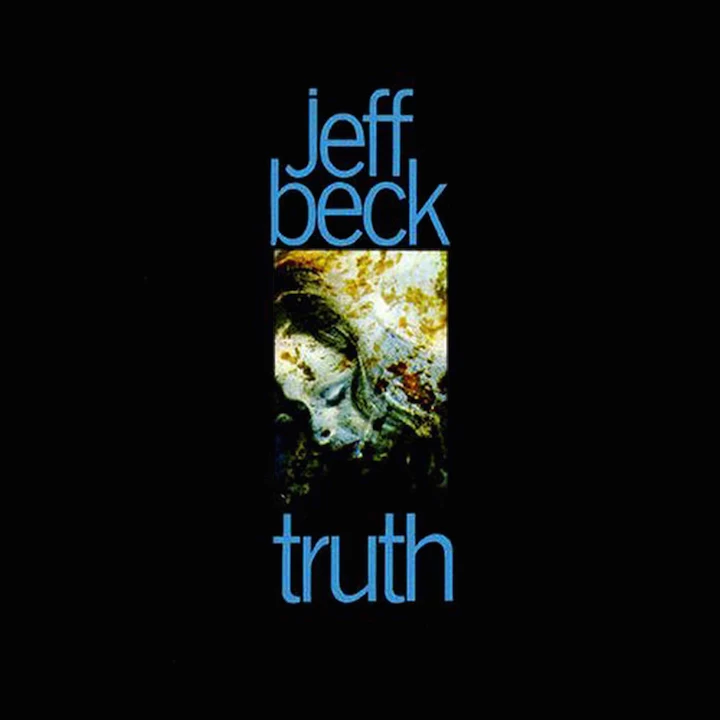
'Truth'
Jeff Beck (1968): Beck moves confidently toward a harder-edged blues-rock synthesis, putting the Yardbirds behind him for good. 'Truth' is also where most of us were introduced to Rod Stewart and Ronnie Wood, long before they rose to their own fame. If Beck's smart debut had only accomplished that, it might still have made this list.

'Electric Ladyland'
Jimi Hendrix (1968): A definitive moment for psychedelic rock, and probably the best realization of Hendrix's far-reaching genius, the double-disc 'Electric Ladyland' is also a little too muddled, and certainly a little overstuffed. But his creativity could scarcely be contained at this point, something that would soon lead Hendrix to break up the Experience.

'The Beatles'
The Beatles (1968): The double-record White Album is often seen as the moment when the Beatles split apart, making four distinct solo records under the band name. To an extent, that's true. But this sprawling, mesmerizing work also points to the future, when things weren't so fab and the music took on intriguing new shades.

'Village Green Preservation Society'
The Kinks (1968): Ray Davies turned back the clock to an earlier time with this concept album about Victorian mores and ideology after a few years of cranking out two- and three-minute British garage-rock songs with two and three chords. It's the Kinks' most cohesive work and one of the decade's most accomplished LPs.

'Astral Weeks'
Van Morrison (1968): After Them's garage-rock blasts and some early poppy solo records (like the hit "Brown Eyed Girl"), Morrison scaled back with a pastoral, acoustic collection of songs with jazzy backing, twisting wordplay and crisscrossing phrasing that helped secure his legend. His masterpiece.
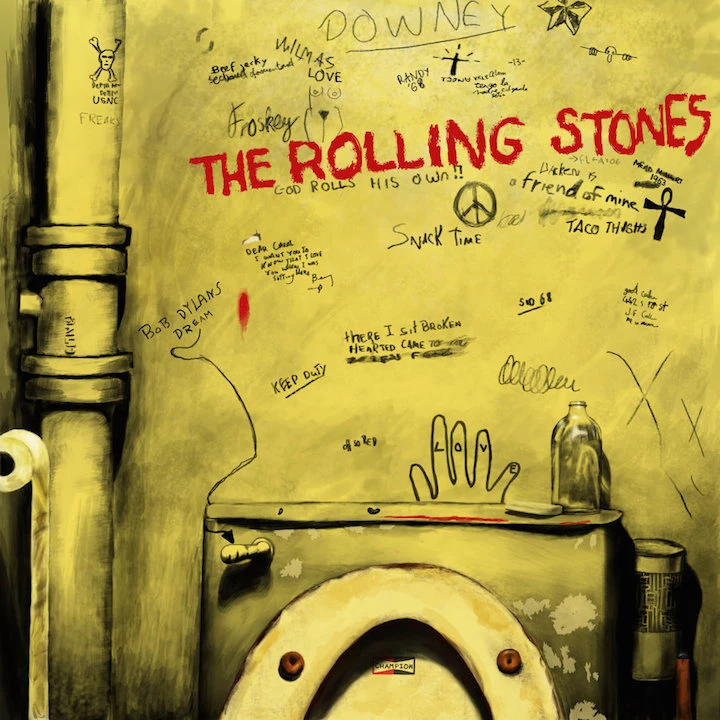
'Beggars Banquet'
The Rolling Stones (1968): A welcome return to their strengths, after a detour into psychedelia, 'Beggars Banquet' found the Stones suddenly coming into their own – as if they finally had gained a perspective on what made them so singular great all along.
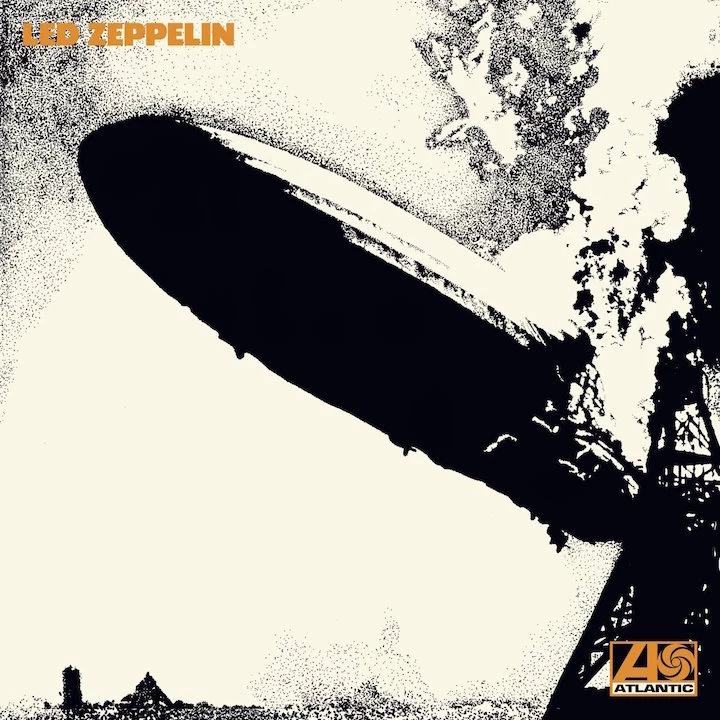
'Led Zeppelin'
Led Zeppelin (1969): There's no denying this set's heavy-blues immediacy, its sense of throwback menace, or even that it's one of the all-time great debuts in rock. Think about this, though: For all of its raw power, the album actually only hints at where Led Zeppelin would soon go.

'The Gilded Palace of Sin'
Flying Burrito Brothers (1969): After a brief stint with the Byrds, Gram Parsons took bassist Chris Hillman with him and formed the Flying Burrito Brothers. Their debut album remains a cornerstone of the country-rock movement, the moment where back roads and front porches intersected with soul, guitars and attitude.
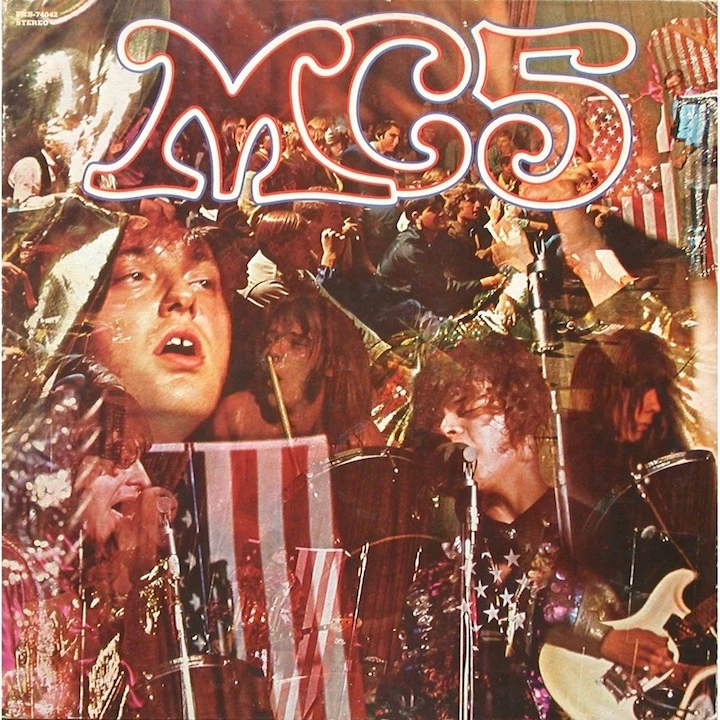
'Kick Out the Jams'
MC5 (1969): Recorded live in Detroit over two October nights in 1968, 'Kick Out the Jams' might be the most kinetic concert recording ever made. Only later did it become clear that this album, loud enough at times to deafen an army, had been one of the first pebbles in an avalanche that would one day be called punk rock.

'Happy Trails'
Quicksilver Messenger Service (1969): Long before they were a signed act, Quicksilver Messenger Service had been road warriors, and that time together helped them perfect an intriguing blend of rock, folk, blues, Bo Diddley, jazz, samba, bluegrass and some kind of crazy lysergic hoodoo. It's still best heard here, onstage.
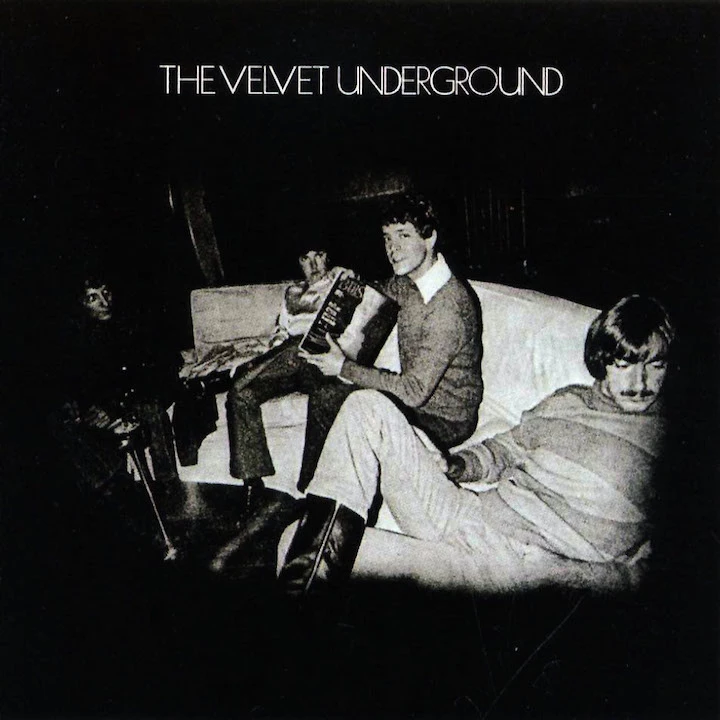
'Velvet Underground'
Velvet Underground (1969): After two albums of art-noise discord, the Velvet Underground scaled back and crafted a late-night folk record of ballads and pretty melodies. But don't be totally fooled. Beneath that tranquility simmers some of Lou Reed's usual spit and spite.
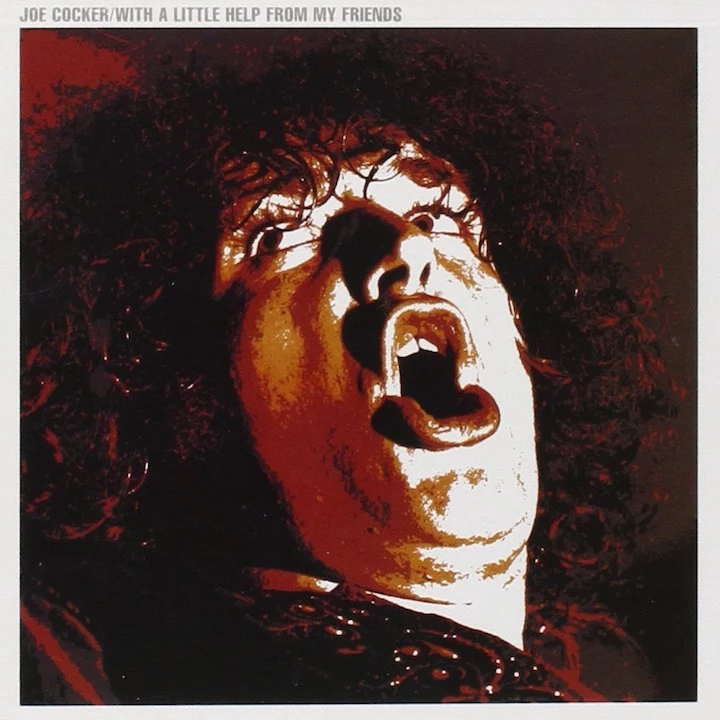
'With a Little Help From My Friends'
Joe Cocker (1969): Joe Cocker remains most famous for what he did with others’ words, even in an era that prized songwriting more than singing. Along the way, Cocker’s audacious updates often superseded even the celebrated originals – and that starts here.
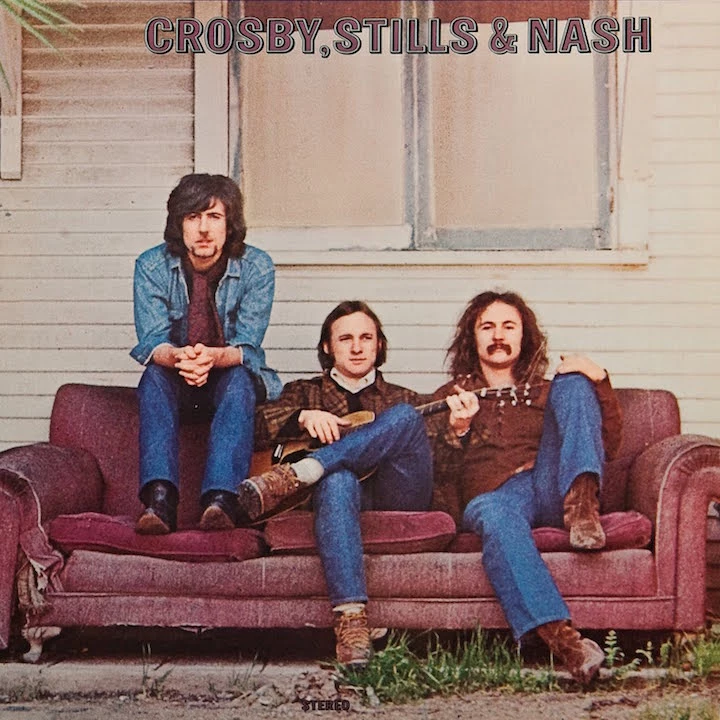
'Crosby, Stills and Nash'
Crosby Stills and Nash (1969): David Crosby (the Byrds), Stephen Stills (Buffalo Springfield) and Graham Nash (the Hollies) had only just released this new supergroup's debut when they played their first gig – at Woodstock. Everybody there apparently bought this 10-song album, which went to No. 6 behind two Top 40 hits.

'Tommy'
The Who (1969): The world's best-known rock opera and Pete Townshend's crowning achievement as a songwriter tells the story of a deaf, dumb and blind boy who becomes a modern-day messiah (and a pinball wizard). It's a perfect celebration and indictment of the '60s too.
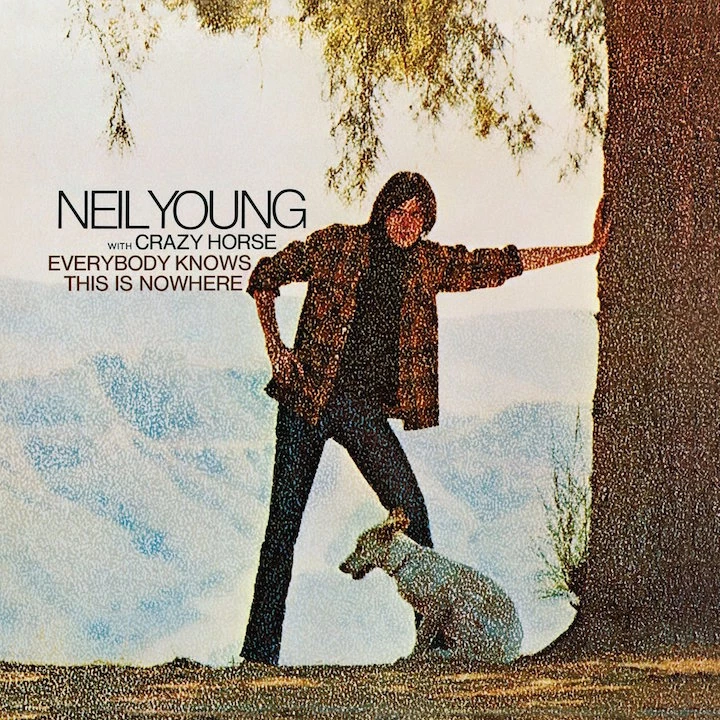
'Everybody Knows This Is Nowhere'
Neil Young (1969): After a strangely subdued self-titled album that held none of the complexities that made his work with Buffalo Springfield so powerful, Neil Young hooks up with his garage-band soulmates in Crazy Horse. It's strange to think about now, but this album – a staggering rebuke of that debut, really – arrived just four months later.

'Trout Mask Replica'
Captain Beefheart (1969): Overseen by none other than Frank Zappa, this free-thinking, crazy-rock concerto saw Captain Beefheart (born Don Van Vliet) helping to set the stage for post-punk, New Wave surrealism and alternative all in one ear-popping fell swoop.

'Beck-Ola'
Jeff Beck (1969): And, just like that, the Jeff Beck Group were no more. But not before releasing a second, even more determinedly metallic album. Beck was, for a moment, racing neck and neck with Cream and Led Zeppelin in a quest to harden rock's edges. The lack of more original material, however, told the tale of a band that would soon splinter.

'Accept No Substitute'
Delaney and Bonnie & Friends (1969): Eric Clapton spent a short, but clearly very rewarding, period as a hired gun with Delaney and Bonnie's group of musically gifted friends – and then swiped two of them (drummer Jim Gordon and bassist Carl Radle) to form the nucleus of his Derek and the Dominos project with Duane Allman.

'Green River'
Creedence Clearwater Revival (1969): An Army stint helped John Fogerty's ideas coalesce away from the swiped sounds of the earliest pre-CCR recordings. It also, as heard here on the scalding "Fortunate Son," politicized him on the continuing Vietnam conflict. Importantly, the well-balanced 'Green River' still retrains plenty of their already-patented swamp-gothic mystery, too.
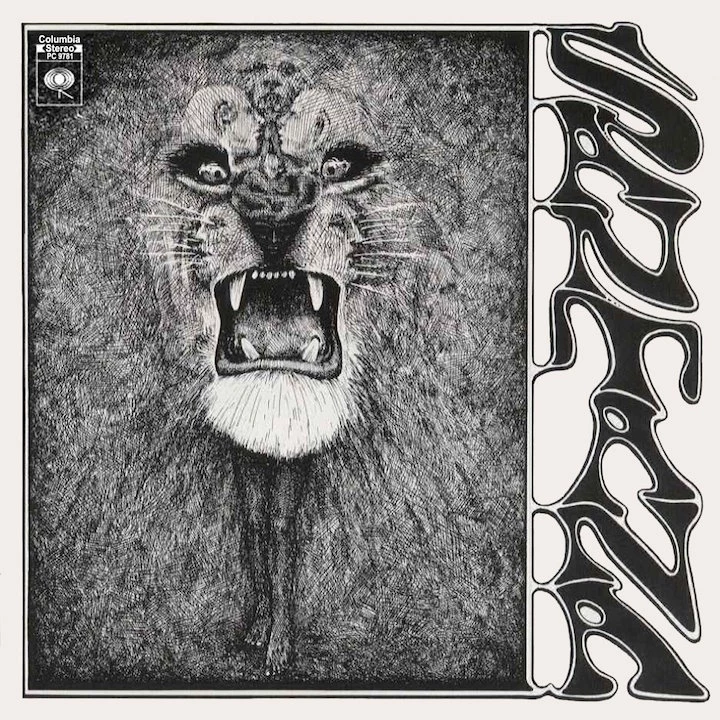
'Santana'
Santana (1969): Timing was everything. Santana's self-titled debut arrived not long after the mostly unknown band had taken the stage at Woodstock and, with “Soul Sacrifice,” quickly creating one of the event's signature moments. 'Santana' shot to No. 4 on the Billboard chart, powered by a U.S. Top 10 finish for "Evil Ways."

'The Stooges'
The Stooges (1969): They weren't the first punk band, and this wasn't the first album to incorporate punk. But Iggy Pop and the Stooges took all of the various pieces that had been lying around, everything that had been presented in scattered moments across others' discography, and muscled it into one ferocious expression of fear, loathing and anger.

'Blind Faith'
Blind Faith (1969): Sometimes oddly disappointing, this supergroup was bouyed with talent – and quickly drowned by expectations. But when Blind Faith put it all together (Steve Winwood's "Can't Find My Way Home" and "Had to Cry Today," Eric Clapton's "Presence of the Lord"), there's ample proof of the greatness that might have been.

'Abbey Road'
The Beatles (1969): Moments away from imploding, the Beatles seemed whole again, though only for a brief moment. If you’re a Paul McCartney fan, this remains his brightest, most artistically satisfying, moment. However, it’s John Lennon’s punctuations (and, to a quickly emerging degree, George Harrison’s), that undoubtably make it so.
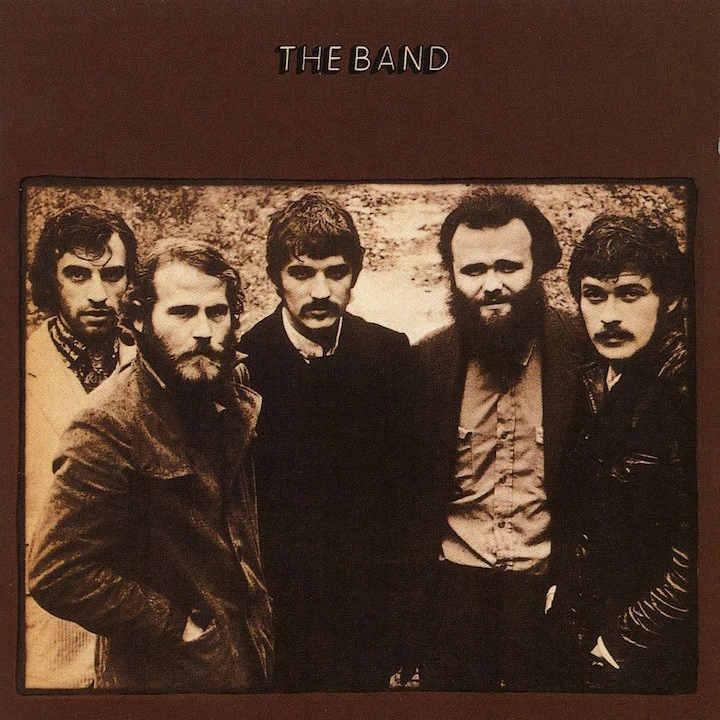
'The Band'
The Band (1969): The Band's second album somehow manages to sound like its famous sepia-toned cover: dusty, ancient and infused with timeless classicism. Robbie Robertson wrote like he was reporting from the Civil War's front lines; the rest of the group played like they were coming from a funeral and on their way to a party.

'Led Zeppelin II'
Led Zeppelin (1969): Led Zeppelin begin to emerge from their influences, setting a template for heavy-rock sounds that would stand for generations. A punishing touring schedule had hammered them into fighting shape and, with 'II' they came out swinging.

'In the Court of the Crimson King'
King Crimson (1969): Daring, even today, and far darker than anything happening in psychedelic rock, this album was the match-light moment for prog. When a portion of King Crimson's lineup almost immediately departed, it also marked the first of what would become a continuous revolution of members around stalwart Robert Fripp.

'Willy and the Poor Boys'
Creedence Clearwater Revival (1969): With a hound-dog yawl that combined Little Richard and Howlin' Wolf, Fogerty used a series of strikingly consistent 1969 releases to unleash some of his very best original narratives. As they seemed to bubble up out of some murky bayou, you'd never have guessed CCR were from California.
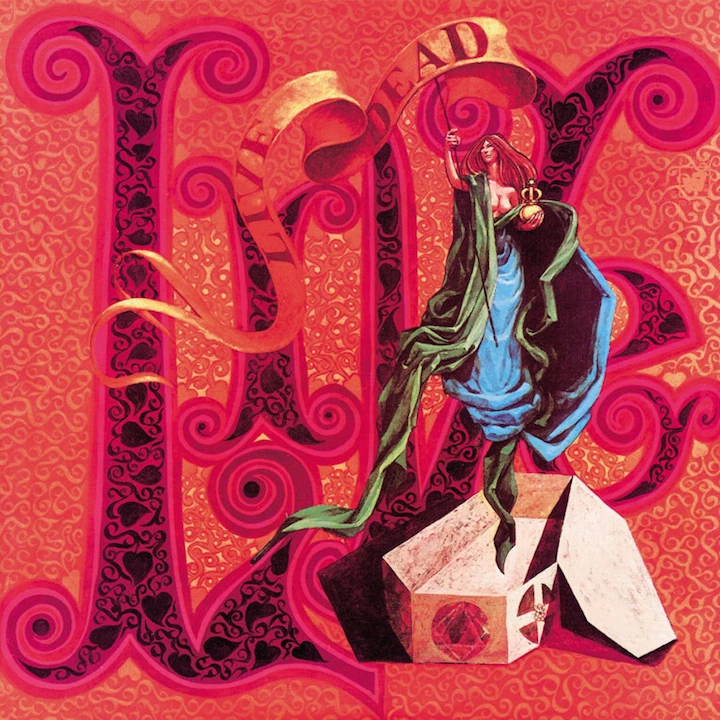
'Live/Dead'
The Grateful Dead (1969): The Grateful Dead's first-ever full-length concert recording revealed more about them than any studio project ever could. Here, through a series of remarkable improvisations – both in terms of conception and nerve – they presented an ageless snapshot of their free-form genius.

'Volunteers'
Jefferson Airplane (1969): A recording that also featured Jerry Garcia, Stephen Stills and David Crosby, 'Volunteers' might have sunk under their collective all-star weight had Jefferson Airplane not constructed it around such a timely theme of anti-establishment and anti-war sentiments. Then there's Jorma Kaukonen's guitar, which provides a unifying, often angry voice.

'Space Oddity'
David Bowie (1969): This album, also known as 'David Bowie' and 'Man of Words / Man of Music,' serves as the perfect introduction to a man who never stuck around in one place for long. Part folk, part singer-songwriterly ballads and part prog, it belonged to no genre and no era. Just like David Bowie.

'Allman Brothers Band'
Allman Brothers Band (1969): This group was, even on its first recording, already a confident, deeply experienced force to be reckoned with – and you hear that everywhere on their timeless debut. Working off closely collaborative jam sessions, the Allmans arrived with signature songs like "Dreams" and "Whipping Post" at the ready.

'Let It Bleed'
The Rolling Stones (1969): The Stones put an end to the '60s with one of their grimiest, least hopeful albums, a cyncial summation of the decade that made them stars. "Gimme Shelter" was more than the opening song; it was their battle cry for the next few years.
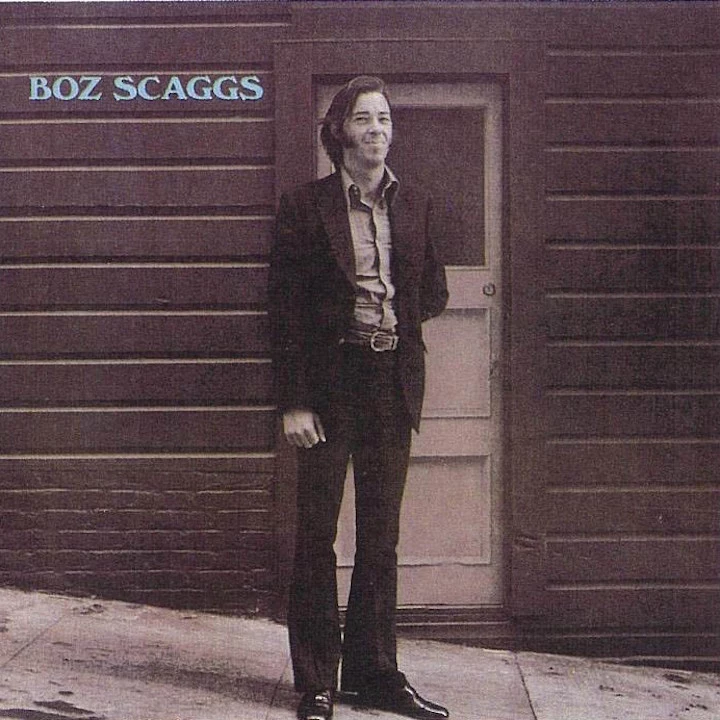
'Boz Scaggs'
Boz Scaggs (1969): Recorded at Muscle Shoals with a group of ace sessions players including Duane Allman, this crackling, very improvisational debut includes forays not just into blue-eyed soul, R&B and blues, but even into country — making this a prototype of the Americana movement to come.

'Grand Funk'
Grand Funk Railroad (1969): A renewed focus on Mark Farner's guitar gave Grand Funk's second studio project a good deal more punch. Still, these approachable trio-based grooves will never be confused with thornier sides by the likes of Cream or Jimi Hendrix. The group's radio-friendly approach to hard rock, in turn, opened the door for acts like Foreigner.